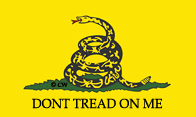Hmmmmm. A good question.
Earlier, we noted that Catholics (at least in Wisconsin) were historically antipathetic to the Republican Party. At least one good reason is found in the article cited, which tells us that the Eugenecist/Progressive movement in Wisconsin was heavily supported by Republicans--and that one of their centerpiece laws required (required!!!) sterilization of all criminals and the insane.
That little piece of work was vigorously opposed by the Archbishop of Milwaukee.
But the Republicans were also Capitalist/Corporatist, effectively placing them in direct opposition to Labor.
We also observed that there was a massive "field switch" during the late 1960's which eventually led Catholics to the "R" ticket--and here's a little item which is of interest in that regard, written by Mark Stricherz.
Bobby Kennedy was dying. Emergency workers rushed him into the back of a waiting ambulance, accompanied by just two people. One was his wife, Ethel; the other, his de facto campaign chairman, Fred Dutton.
...The only thing they disagreed on -- and the one thing they never talked about -- was the future of Catholics in the Democratic Party. Kennedy wanted to ensure their pride of place in the Democratic coalition; Dutton did not.
In 1968, Dutton gained a reputation as the chief theoretician of the New Politics -- the idea that the Democrats should be based on a coalition of "campus, ghetto, and suburb."
Based on Changing Sources of Power, [a book authored by Dutton] as well as interviews that Dutton granted with me and others, it's fair to conclude that Dutton deserves another reputation: He was the first major Democratic official who sought to loosen Catholics' historic ties with the Democratic Party -- and as a consequence, turned them into Reagan Democrats.
One may quibble that the Reagan Democrats were 1) not exclusively Catholic; and 2) not moved simply by virtue of Dutton's theory...but there's no question that these days, Catholics tend to be more "R" than "D."
Dutton recounted this scene [an imbroglio at the DConvention/'68] often, which crystallized his view of politics and of his place in the political world: The main dividing line in American politics was no longer between poor and rich, or even black and white; it was between young and old.
More telling:
Frederick Gary Dutton was the son of a doctor. During the Depression, the Dutton family had moved to California, and Fred graduated from Cal-Berkeley and Stanford Law School. Having grown up affluent and educated, Dutton was never a Democrat of the blue-collar variety. Formerly the co-editor of the Stanford Law Review, Dutton belonged to the intellectual wing; his idol had been Adlai Stevenson, whose 1956 presidential campaign in southern California he had run.
That's significant: the old-line Democrat bunch was Labor, which (recall the Polish/Irish/German influence) was largely Catholic. But the old-line group was most certainly NOT a bunch of Stanford grads.
Dutton expressed support for the secular aims of activist students:
Most of them also dispute the special emphasis on Christianity, the right of parents, teachers, and public officials to make decisions for others, and the essential decency of the present society
(...and that "secularity" has also proven problematic, no?...)
Dutton set his sights on a grand prize: He wanted to change the Democratic Party's coalition. He no longer supported the New Deal coalition, which had united the party around a working-class agenda. He preferred what he called a Social Change coalition, which would focus on the social, economic, and foreign policy concerns of young baby boomers.
It is interesting to note that neither Clinton nor Obama support a "working-class agenda," --see the NAFTA embarrassments--but of course, outside of P J Buchanan, there is no Republican of note who does, either. More important, the Democrat Party's emancipation from a 'moral' foundation (which was driven by its acceptance of 'secular liberalism') has created a larger group of disaffected: the 'religious Right,' which revolted with the Democrat embrace of free/easy abortion--the linchpin of the 'secularism'--not to mention its dalliance with gay "marriage" and other fringe oddities of that sort.
He believed that, in order to survive, the Democratic Party had to embrace young people and students. As he told author Penn Kimball in 1967, "the coming of age of the World War II baby boomers" would "bring about in the years from 1968 to 1972 the biggest single revolution in U.S. voting."
And Dutton sought to do so with an idea very different from those of Al Smith, Franklin D. Roosevelt, and Jack and Bobby Kennedy. They believed that Catholics should be a key constituency in the Democratic coalition. Fred Dutton believed that their spot should be taken by college-educated young people.
So what the Democrats sought, and now have, is the NEA and other public-employee unions, the Professoriate, the MSM, the Secular Liberals, the Aggrievement Bar, (all college-grad types) and a few remnant Unions (UFCW, SEIU), which are significantly populated by recent immigrants. (To some extent the "Secular Liberal" universe encompasses the first five of those groups.)
The "Reagan Republican" group is not particularly excited by McCain, and certainly not by either Democrat possible.
What they decide this Fall, however, will decide the election.
Subscribe to:
Post Comments (Atom)




No comments:
Post a Comment